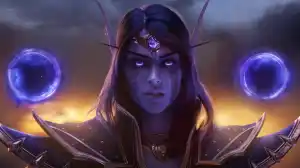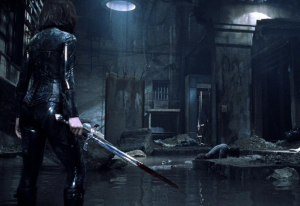For all the incredible worlds the MMO genre has given us, it is hard not to feel like World of Warcraft has kept the entire space locked in place for twenty years. So many MMOs tried to compete, some by copying World of Warcraft directly and others by taking big risks with new mechanics, but very few ever got the chance to grow.
Videos by ComicBook.com
That is why the forgotten MMOs sting the most. These games had plenty of passion and ambition that could have pushed the genre forward, yet they faded into the background as their various audiences narrowed over time. They all tried to take on World of Warcraft, and for a time, each of them seemed to have a chance. But, fate would not have that. Here are four MMOs that had the potential to rival World of Warcraft, even if the market never gave them the opportunity.
4. Warhammer Online: Age of Reckoning
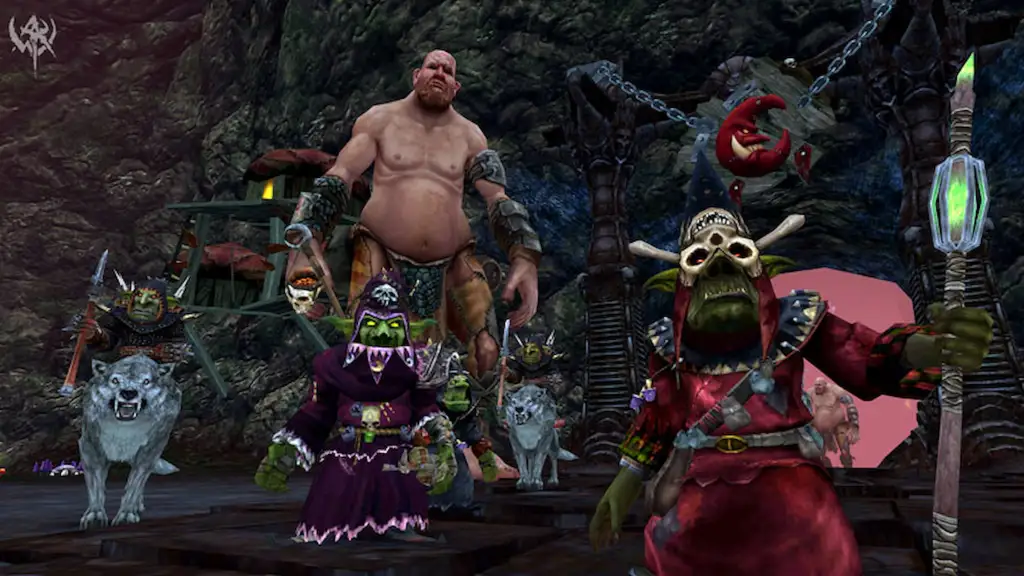
Warhammer Online had the energy of a true challenger from the first moment it was shown off, and when you first stepped into its war-torn zones. While it mirrored WoW’s structure in many obvious ways, it centered the experience around Realm vs Realm warfare, a PvP mode where you could push territory, defend keeps, and take part in huge public battles that felt like a living front line. It was the kind of large-scale PvP design you wish more MMOs would attempt, and at launch, it seemed like the first real threat to WoW’s dominance.
The problem is that Warhammer Online never even came close to reaching the level of polish it needed to actually compete. Bugs, server issues, content gaps, and balancing problems slowly drained its momentum. You could feel the potential in every RvR fight, but you could also feel the immense amount of server lag at the same time. In the end, the full package never came together long enough for the game to stabilize. That is why it is often forgotten today. It had brilliant ideas and a passionate community, but it never had the time or consistency to become the genre-defining force it should have been.
3. WildStar
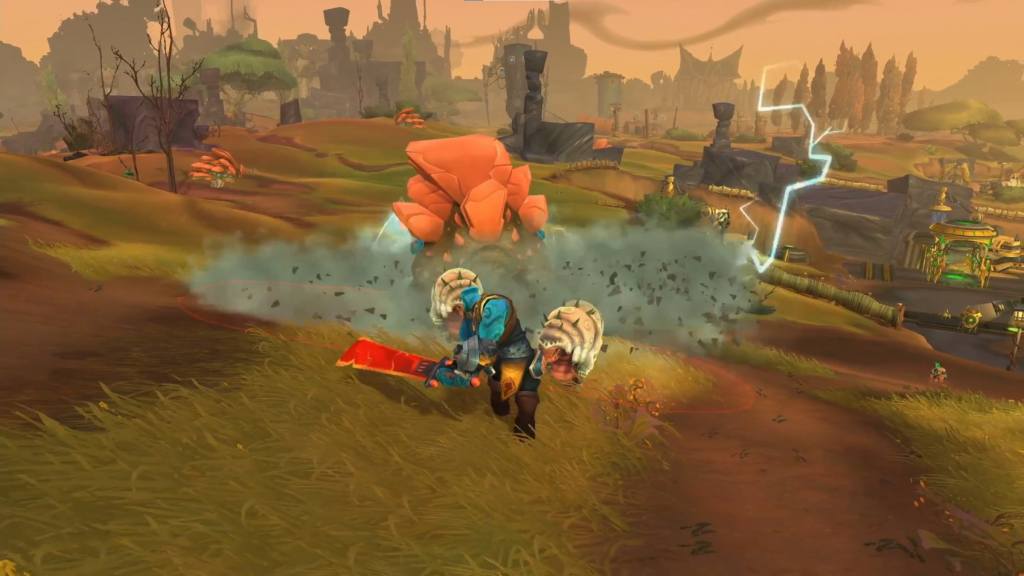
WildStar arrived with the kind of confidence and personality necessary to take on WoW dominance. Yes, it had a WoW-like core, but everything on the surface felt like a fresh, modernized take on it. The combat was fast and reactive. The telegraph system rewarded movement and skill in ways most MMOs still have not matched. And the player housing system was so detailed and flexible that no modern game has come close to replicating it. You could feel the passion in every inch of Nexus, and it felt like an MMO that wanted to evolve the formula rather than imitate it.
The problem was timing and audience focus. WildStar leaned heavily into brutally difficult endgame raiding at a time when the MMO genre was drifting toward more accessible experiences. Instead of growing its audience, it narrowed it more and more until the game could no longer sustain itself. The game’s unique mechanics deserved better support and more time to settle, but the market simply was not there. That is why WildStar is remembered fondly and forgotten at the same time. It offered some of the smartest systems in the MMO space, but it never found the stable community it needed to survive.
2. EverQuest 2
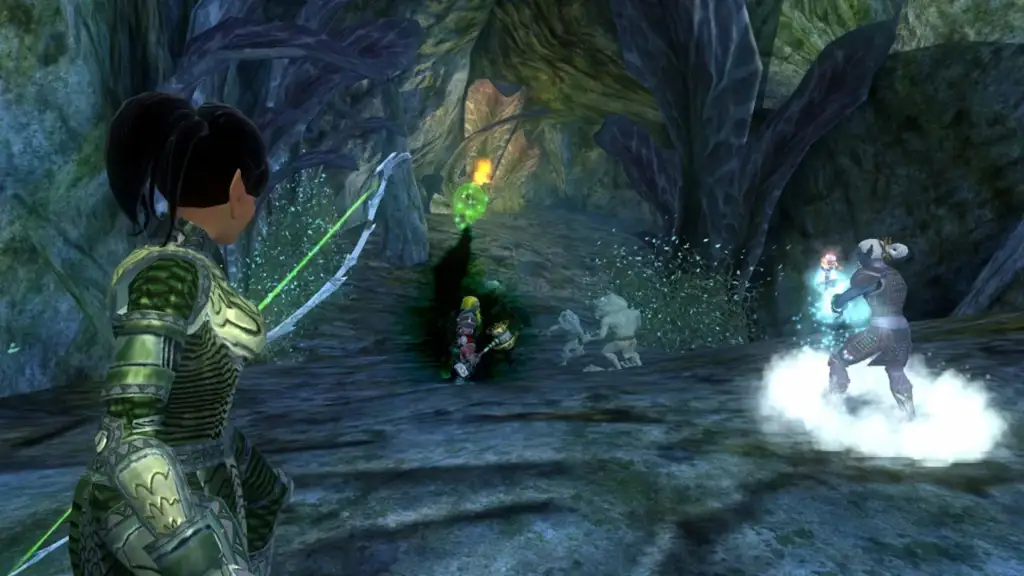
EverQuest 2 suffered from timing more than anything else, as it was a very strong game right from day one. It was released only weeks before World of Warcraft and felt like a game that was caught between the old and new MMO eras. It carried the complexity, depth, and sometimes clunky feel of traditional MMOs, but also mixed in surprisingly advanced elements that even WoW utilized. You could dive deep into crafting, take on branching class lines, build a home within the world, and enjoy a level of narrative focus that most MMOs at the time did not bother with. It had the foundation to be the modern evolution of EverQuest, but it never escaped WoW’s gravity.
The biggest issue is that most people who tried EQ2 left early because of rough performance and a rapidly shifting development direction. As WoW exploded, EverQuest 2 slowly slipped into the background, becoming a niche game known mostly among MMO veterans. The game had all the systems and world-building needed to stand as a long-term genre leader, but the market was already moving in a direction it could not compete with. That is why it feels forgotten today, even though the people who stuck with it still talk about its depth with real admiration. Of all the games on this list, though, it is solely EverQuest 2 that remains online in an official capacity to this day.
1. Rift
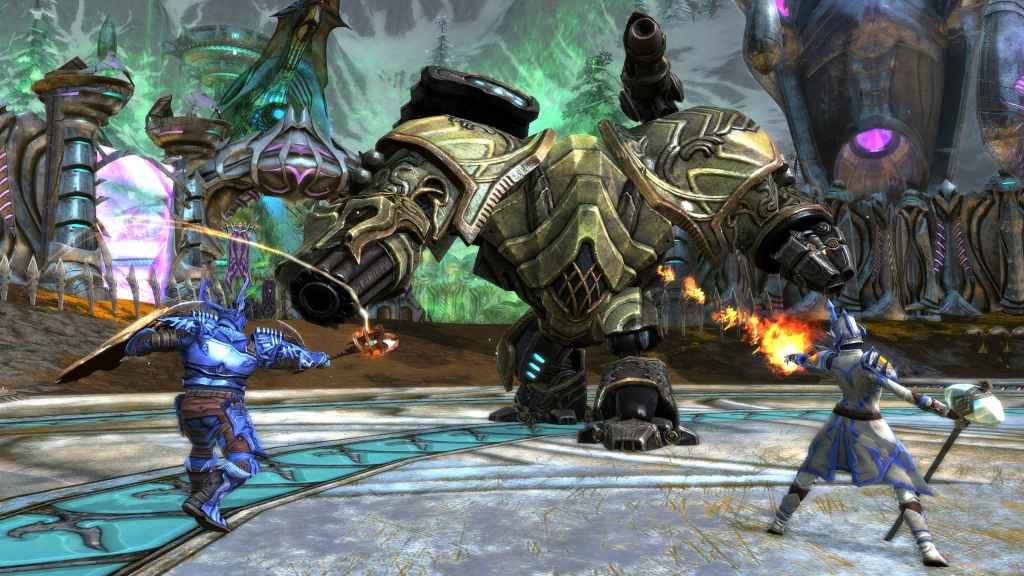
Rift is possibly the clearest example of an MMO that almost did everything right. It was a WoW-like game in structure, but it improved on nearly every core system. The soul class system gave you far more customization options over your class than WoW or any other MMORPG. It let you customize your character in a way that felt personal by allowing you to mix and match talent trees from various sub-classes with your main class. Dynamic rift events turned every zone into a living battleground. The game launched polished, confident, and full of energy, and for a brief moment, it felt like WoW finally had a rival that could keep up.
But Rift lost its direction quickly. As the game moved toward aggressive monetization and slower development pacing, the momentum began to collapse. People left not because Rift lacked quality, but because the long-term support did not match the promise of its launch. It also had a number of engine-related technical issues and some of the worst animation work seen in a 2000s-era MMO. Today, the game is remembered fondly by those who played it early, but it is largely forgotten in the MMO space because it slowly drifted away from the strong identity that once made it feel like a real threat to WoW. Rift deserved so much more than the ending it got, and it remains one of the genre’s strongest missed opportunities.
What do you think? Leave a comment below and join the conversation now in the ComicBook Forum!

